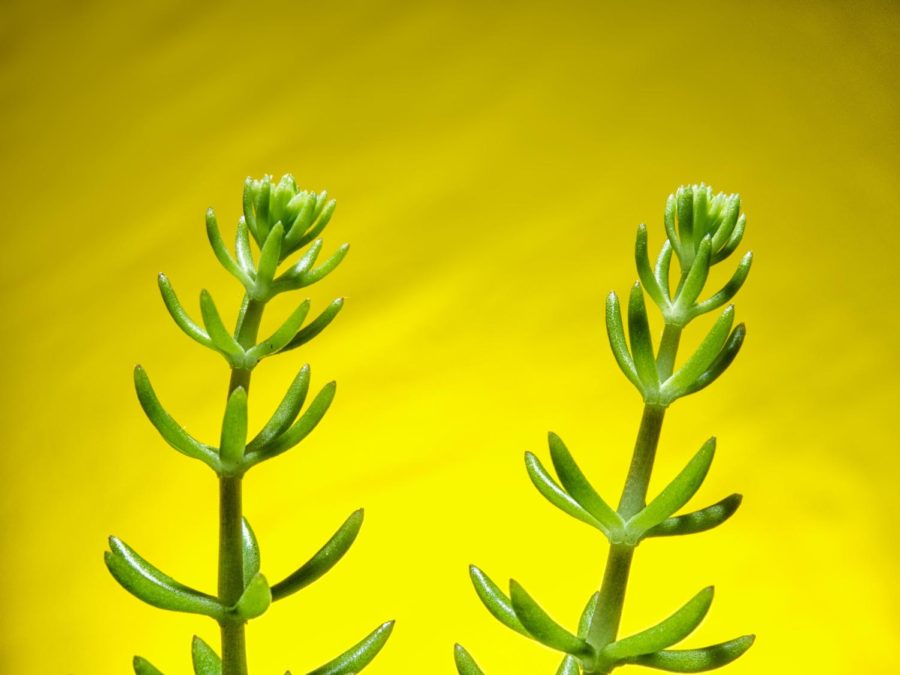Vieira: Photosynthesizing the stress away
February 2, 2021
The day I write this is Tuesday, which means I ought to water my plants. While meticulously pouring the water, I attempt to gauge the right amount of liquid required by the living being, careful not to over or underwater it. After the round is complete, I take a step back and reflect on this cyclical ritual.
Indoor gardening first made its way into households around the time of ancient Greeks and Romans, though there are some even earlier recollections of the practice. However, it mainly regards outdoor gardening and the upkeep of courtyards.
The Japanese culture had been perfecting tree cultivation techniques for centuries to produce the Bonsai, a widely popular dwarf tree. Only around the 1600s, after the successful introduction of greenhouses and conservatories in England, plants started to become a decorative item.
Younger generations, mainly millennials, are the real drivers of this new market. The trend truly bloomed this last decade, becoming something seen as almost necessary for a household to feel like a home. Despite being viewed as something solely aesthetic, indoor gardening can be beneficial in many other ways.
For instance, snake plants act as air purifiers by removing toxins from the air, and it converts a lot of CO2 (carbon dioxide) to O2 (oxygen) at night, making it ideal to have in your bedroom. Nurturing a plant can have mental benefits; research shows interacting with houseplants may lower blood pressure, calm the nervous system and promote a general feeling of well-being. Because of their watering and repotting needs, plants insert their routines into ours, giving our life some structure, much needed during these crazy times. A sense of purpose lightens up inside of us as we become responsible for something. Tending to a plant teaches us to believe in something; it gives us hope.
During these recent lockdowns, hope became something essential, empowering us to keep going throughout the darkest of times. An interesting article in The Economist elaborates on how gardening centers were among the first stores to run out of supplies due to the extreme surge in demand throughout the stay-at-home order. In the story, interviewees explain how their gardens kept them from losing it all and how fundamentally therapeutic they became. Gardening is also widely recommended as a treatment for depression and anxiety patients because of its natural ability to ground an individual.
Being around plants personally makes me feel calmer and more relaxed, helping me be in a better mood and more focused. Katherine Gillespie, a writer for Vice, shed some light on the topic and concluded the article with some powerful insight:
“The science is pretty clear on all this: humans are happier when they’re close to aesthetically pleasing living things. Office workers have been found to be more productive and happy when surrounded by indoor plants, and having plants in hospital rooms helps surgical patients recover faster by lowering blood pressure, pain and fatigue levels. Studies have found that even the literal act of looking out the window at a tiny strip of sad urban park can have restorative mental health properties.”

















